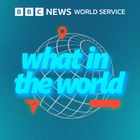
What in the World
Sep 19, 2024
This week thousands of pagers and walkie talkies exploded all at once in Lebanon. Dozens were killed and thousands injured. These gadgets were used to communicate by members of Hezbollah, a designated terrorist group in Lebanon. Israel is widely believed to be behind these attacks, but Israel has not confirmed or denied its involvement. There are fears this could make the ongoing conflict in the Middle East even worse.
Speaking from Beirut, the BBC’s Rami Ruhayem talks us through the aftermath of the attack and explains what Hezbollah is and how it started. He also discusses why Israel may have done this.
Why was Hezbollah using these old-fashioned devices and how did they explode? The BBC’s cyber correspondent Joe Tidy tells us more (and explains what a pager is). And Gordon Corera, the BBC’s security correspondent, gives us a short summary of other covert operations - and why this one is different.
Instagram: @bbcwhatintheworld Email: [email protected] WhatsApp: +44 0330 12 33 22 6 Presenter: Hannah Gelbart Producers: Julia Ross-Roy and Maria Clara Montoya Editor: Verity Wilde

